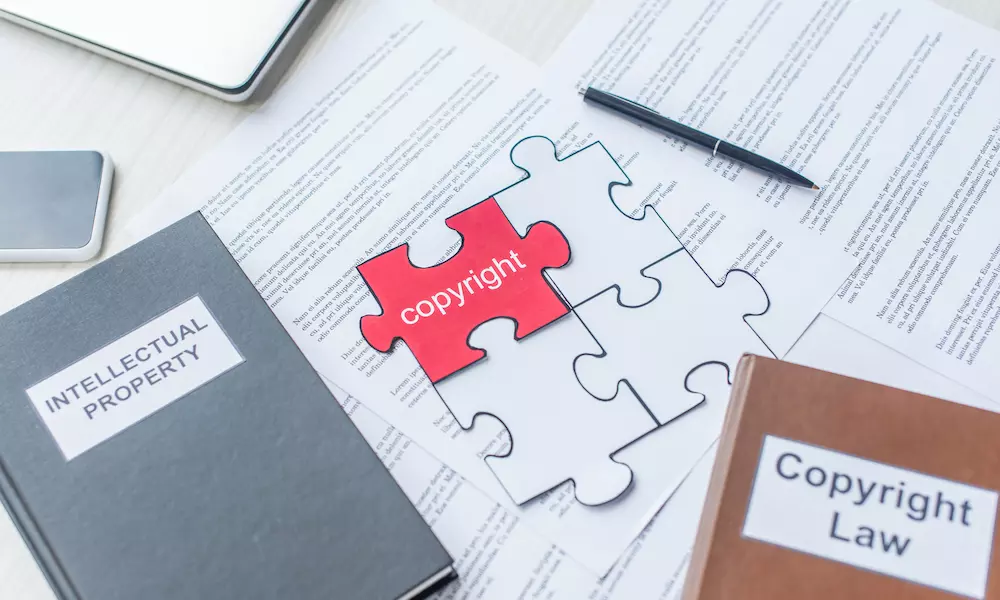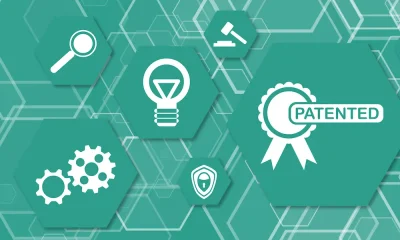Legal
Business Laws You Need To Know Today

Different types of business law govern various aspects of business operations in 2023. Protecting customers’ rights and those of their staff and assets must be front of mind when starting, buying, and managing a business.
Some business laws, like intellectual property law, and how it covers digital assets are complex and need further understanding. This article provides more detail on intellectual property law and environmental law. Plus, an overview of the most common business law types so organizations can operate legally and ethically.
Business Laws Explained
We have listed the following business laws in alphabetical order.
Antitrust Law
A law that regulates the competition between businesses and prevents monopolies and other anti-competitive practices is called an Antitrust law. An example of what the law prevents is price fixing and unlawful mergers. Investopedia explains antitrust law with examples.
Contract law
The area of law that deals with agreements between individuals and businesses is contract law. It governs the creation and enforcement of contracts, including terms and conditions, breach of contract, and damages.
Corporate law
Corporate law covers how a corporation is formed, managed, and dissolved. This law covers corporate governance, mergers and acquisitions, and shareholder rights.
Employment law
Protecting the rights and the relationship between employers and employees, including hiring, firing discrimination, and workplace safety, is governed by employment laws. Unfair dismissals, failure to pay due bonuses, holiday entitlement, or honor sick leave are some issues covered by employment law.
Environmental law
Today, businesses must show they are adapting their operations to be more environmentally friendly. Environmental law regulates the impact of business operations on the environment, including pollution, waste disposal, and resource conservation.
Environmental law refers to laws, regulations, and policies governing human interaction and the environment. Its objective is to protect the natural environment and public health by regulating the use and exploitation of natural resources, controlling pollution, and preventing environmental harm.
How can organizations comply with it?
Organizations are responsible for complying with environmental laws to ensure that their operations do not harm the environment and contribute to sustainable development. Here are some critical steps organizations can take to comply with environmental regulations.
Understand the relevant environmental laws.
Organizations must know the environmental laws that apply to their operations and activities. This includes air and water quality laws, waste management, hazardous materials, and endangered species.
Develop an environmental management system
An environmental management system (EMS) is a framework that helps organizations manage their environmental responsibilities systematically and proactively. It involves identifying environmental risks, setting objectives and targets, and implementing procedures to manage and monitor environmental performance.
Conduct regular environmental audits.
Organizations should conduct regular environmental audits to assess their compliance with environmental laws and identify areas for improvement. Environmental audits can help organizations identify and address environmental risks and liabilities.
Implement pollution prevention measures
Organizations should implement pollution prevention measures to minimize their impact on the environment. This can include reducing energy consumption, using environmentally friendly products, and minimizing waste generation.
Maintain records and report environmental performance.
Organizations should maintain environmental performance records and report this information to relevant authorities as the law requires. This includes emissions data, waste generation, and environmental permits and regulations compliance.
Staff Education
Organizations should provide training and education to employees and their freelancers to ensure that they understand their environmental responsibilities and how to comply with environmental laws.
Environment law is a complex body of rules that needs a thorough understanding. A good starting point is to engage an environmental law expert for new businesses or new management of existing companies. Knowing which laws are applicable is essential. Then by following these steps, organizations can ensure that they comply with environmental laws and contribute to sustainable development.
Intellectual property law (IP law)
What is intellectual property law? This law protects intangible assets such as trademarks, copyrights, and patents. Plus, IP law governs the creation, use, and enforcement of intellectual property rights. Today businesses have accumulated many digital assets, and they are covered by IP law.
Digital Assets
Digital assets are covered by intellectual property laws, including any type of digital content that can be protected by copyright, trademark, or patent law.
What is a digital asset?
A digital asset is any type of content, data, or information that exists in digital form and has value. This can include digital files such as documents, images, audio and video files, software, e-books, and more.
Digital assets can also refer to online accounts, social media profiles, domain names, and other types of online presence that have value to individuals or organizations.
In recent years, the term “digital asset” has also come to be associated with cryptocurrencies such as Bitcoin and Ethereum, digital or virtual currencies that exist on a decentralized blockchain network. Another type of digital asset is an NFT (non-fungible token) explained here. These digital assets have value and can be traded or used for various purposes, like physical assets such as gold or stocks.
Overall, digital assets have become increasingly important in the modern digital economy, where the ability to create, share and monetize digital content is a crucial driver of innovation and growth.
IP law and digital assets
How are digital assets covered by intellectual property laws? There are five components of intellectual property law protecting digital assets, including:
- Copyrighted works
- Trademarks
- Trade secrets
- Patents
- Data
Copyrighted works
This includes digital content such as software, music, movies, eBooks, digital art, and other creative works protected by copyright law.
Trademarks
This includes digital assets such as logos, domain names, and other distinctive marks that identify and distinguish products or services.
Patents
This includes digital assets such as software algorithms, business methods, and other inventions protected by patent law.
Trade secrets
This includes confidential information such as formulas, designs, and other proprietary information that provides a competitive advantage.
Data
This includes any digital asset that contains valuable information, such as customer data, financial data, and other types of data that can be protected by intellectual property law.
Overall, any digital asset that has value and can be protected by intellectual property law is considered a digital asset covered by intellectual property laws.
Securities law
Securities law regulates issuing and trading securities such as stocks and bonds. It includes regulations on insider trading, securities fraud, and disclosure requirements.
Tax law
This governs the taxation of businesses, including corporate income tax, sales tax, and employment tax.
Final Thoughts
Overall, business law encompasses a wide range of legal principles and regulations designed to govern the conduct of businesses and protect the interests of all parties involved.
Business law is complex, and it’s tough keeping up. Therefore, no surprise to hear that law firms are turning to emerging technologies like AI (artificial intelligence) to assist their staff of attorneys, solicitors, and legal assistants. Wired has a story on ChatGPT’s generative AI for lawyers, and it doesn’t start or end here.
Law firms are already using AI, including one partnering with Harvey.
Watch this space. We will be contributing more relevant content for you on business laws.









